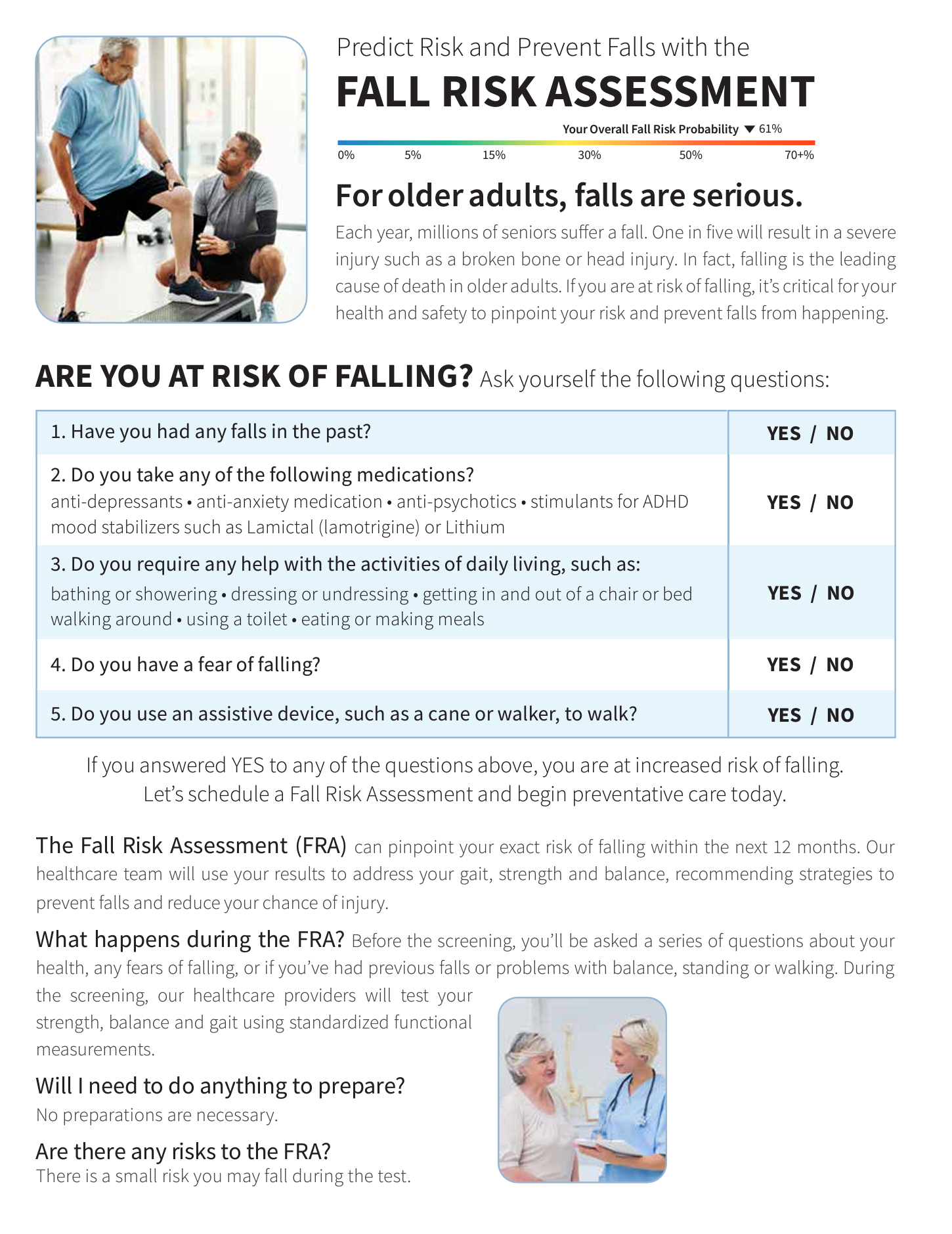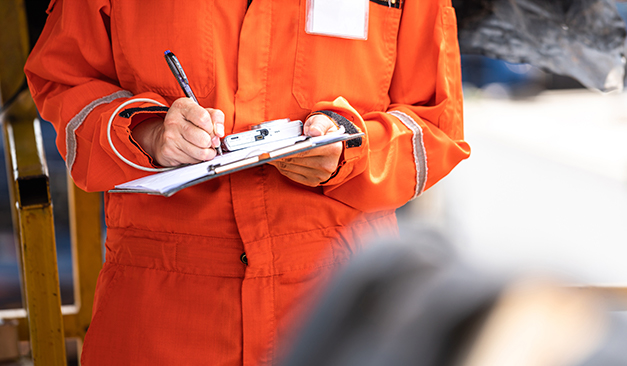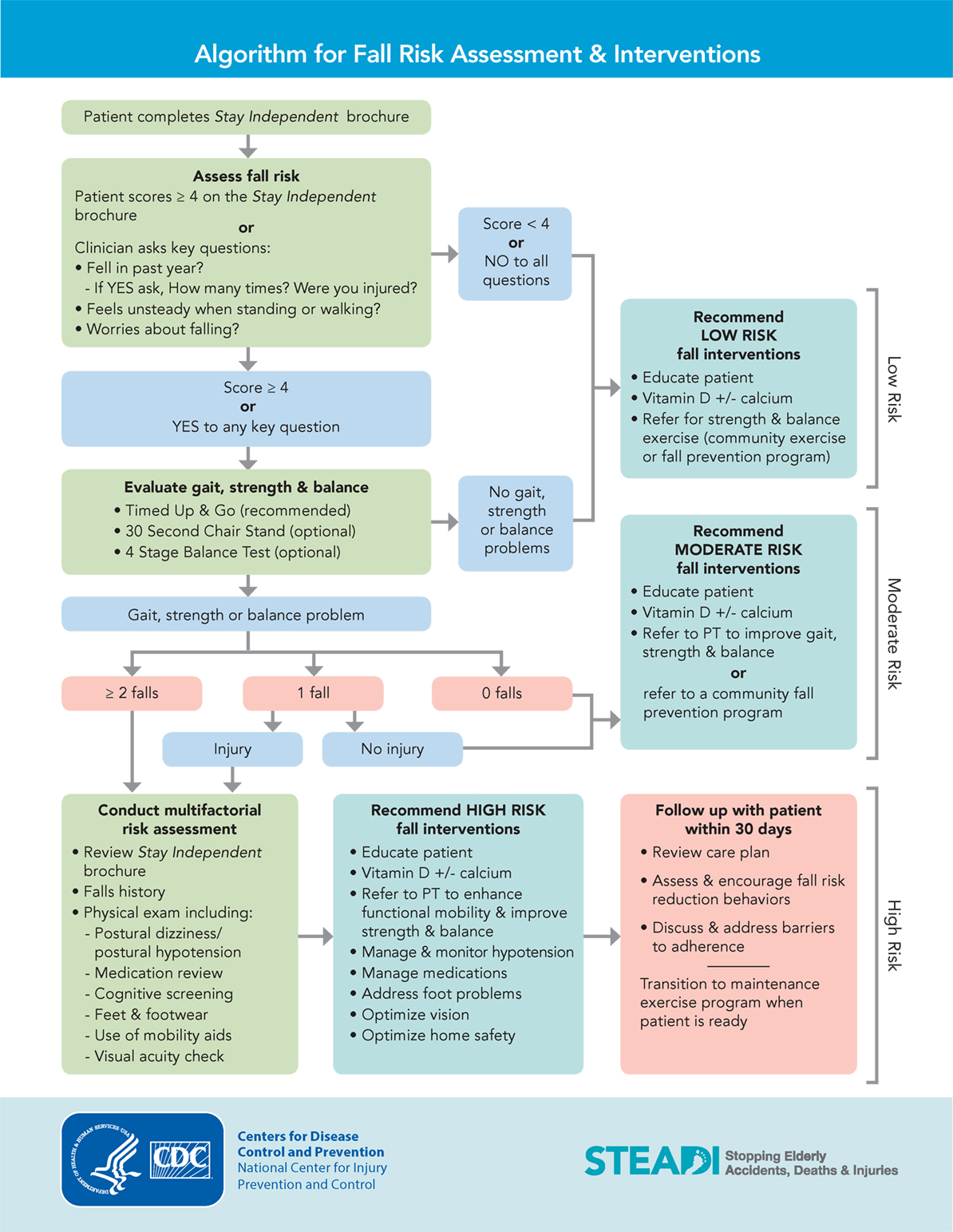Some Known Facts About Dementia Fall Risk.
Some Known Facts About Dementia Fall Risk.
Blog Article
The Single Strategy To Use For Dementia Fall Risk
Table of ContentsGetting The Dementia Fall Risk To WorkDementia Fall Risk Things To Know Before You Get ThisSome Known Incorrect Statements About Dementia Fall Risk Not known Facts About Dementia Fall RiskIndicators on Dementia Fall Risk You Should Know
The FRAT has three areas: drop threat standing, risk variable checklist, and activity plan. An Autumn Threat Condition consists of data concerning history of current falls, medications, psychological and cognitive standing of the person - Dementia Fall Risk.If the client scores on a risk aspect, the matching variety of points are counted to the person's loss threat score in package to the far best. If a person's fall risk score totals 5 or greater, the individual is at high danger for drops. If the client ratings just four points or reduced, they are still at some threat of dropping, and the nurse ought to use their best medical assessment to handle all autumn danger factors as component of an all natural care plan.
These conventional strategies, in general, help create a secure setting that minimizes unexpected falls and delineates core preventative procedures for all people. Indications are important for people at danger for falls.
The 3-Minute Rule for Dementia Fall Risk
Wristbands need to consist of the client's last and initial name, date of birth, and NHS number in the UK. Details ought to be printed/written in black against a white background. Just red color must be used to indicate special client status. These suggestions are consistent with current growths in client recognition (Sevdalis et al., 2009).
Things that are as well much might need the individual to reach out or ambulate unnecessarily and can potentially be a threat or add to drops. Assists protect against the patient from going out of bed with no support. Registered nurses reply to fallers' phone call lights faster than they do to lights initiated by non-fallers.
Aesthetic disability can significantly cause falls. Maintaining the beds closer to the floor reduces the risk of drops and major injury. Placing the bed mattress on the flooring dramatically minimizes loss danger in some healthcare settings.
About Dementia Fall Risk
Clients who are high and with weak leg muscular tissues who attempt to remain on the bed from a standing setting are most likely to drop onto the bed due to the fact that it's also low for them to decrease themselves my explanation safely. If a high client attempts to obtain up from a low bed without assistance, the patient is most likely to drop back down onto the bed or miss the bed and drop onto the flooring.
They're developed to advertise prompt rescue, not to prevent drops from bed. Aside from bed alarm systems, increased guidance for risky clients also might assist protect against drops.

Clients with an evasion gait rise fall opportunities dramatically. To reduce fall danger, footwear ought to be with a little to no heel, thin soles with slip-resistant tread, and support the ankles.
Top Guidelines Of Dementia Fall Risk
People, specifically older adults, have actually decreased visual capability. Illumination a strange atmosphere assists boost presence if the patient need to rise during the night. In a research, homes with adequate lights record less falls (Ramulu et al., 2021). Enhancement in illumination in your home might decrease autumn prices in older adults (Dementia Fall Risk). Using stride belts by all healthcare providers can promote security when helping patients with transfers from bed to chair.

Sitters work for assuring a secure, safeguarded, and secure environment. Nevertheless, researches demonstrated very low-certainty proof that sitters minimize autumn risk in intense care medical facilities and just moderate-certainty that options like video clip surveillance can minimize sitter usage without enhancing autumn risk, suggesting that sitters are not as useful as initially thought (Greely et al., 2020).
Dementia Fall Risk - The Facts

Enhanced physical fitness decreases the risk for falls and limits injury that is my blog received when autumn takes place. Land and water-based workout programs may be similarly advantageous on balance and stride and thus reduce the threat for falls. Water exercise might add her response a favorable benefit on balance and stride for females 65 years and older.
Chair Surge Exercise is a simple sit-to-stand workout that helps strengthen the muscle mass in the upper legs and butts and boosts flexibility and independence. The objective is to do Chair Increase workouts without using hands as the customer ends up being more powerful. See sources section for an in-depth instruction on just how to do Chair Surge exercise.
Report this page